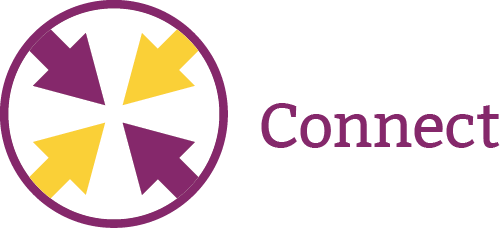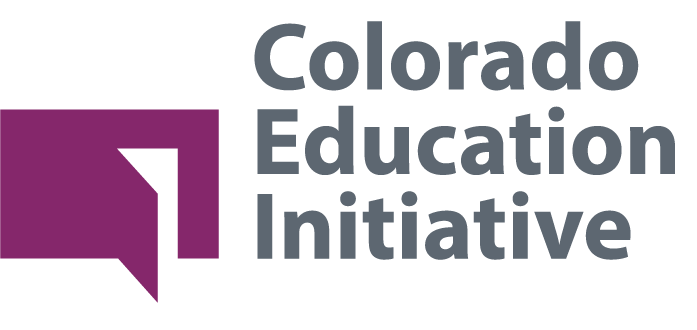
 CEI believes developmental relationships are a cornerstone to powerful learning. After educators, students, and families experienced prolonged isolation due to the COVID-19 pandemic and the uncertainty of how school will start or sustain learning in the fall, schools and districts need to plan for how to connect with their community when returning to learning. The process of connecting must start with adults in schools and districts.
CEI believes developmental relationships are a cornerstone to powerful learning. After educators, students, and families experienced prolonged isolation due to the COVID-19 pandemic and the uncertainty of how school will start or sustain learning in the fall, schools and districts need to plan for how to connect with their community when returning to learning. The process of connecting must start with adults in schools and districts.
Doubling down on relationship building starts with adult practice.
- Tell your stories. Make time to appreciate diverse experience as teachers, counselors, and administrators last spring. Tell stories of hope; be vulnerable about challenges, encourage gratitude for what you accomplished together. Practice listening to each other.
- Create rituals and routines that bring staff together to listen, laugh, creatively solve problems, and participate in relational skill building activities that could be fun (home scavenger hunts, friendly competitions, poetry readings and reflection, “mindful Mondays,” etc.)

Strengthen relationships between colleagues—see and hear each other in unprecedented ways

East Grand School District
East Grand School District will launch monthly four-day long, district-wide social-emotional focused conversations and activities for staff. One day will consist of mandatory small-group collaborative meetings and general staff meetings. During other three days, each school will offer optional 15-20 minute group social activities (stretching, yoga, dance parties, coffee/tea time, classroom open houses, book/TED club). This will be universally offered to all staff, easily transferred to zoom calls in the instance of an online learning plan, and will be offered consistently with fidelity throughout the year.
East Grand Wellness Connection
Clear Creek School District
Clear Creek School District will launch a plan to help staff/educators feel more connected and part of a community in order to provide a more well-rounded, holistic approach to staff wellness. The plan ensures support throughout the year in several time increments: two weeks prior to school beginning, the first two weeks of school, and beyond for the remainder of the year. These activities include birthday buddies (buddy will lead staff in signing a birthday card, getting cake, low price), first Friday happy hours (gathering at alternate staff’s houses or via zoom depending on the pandemic), and mindful Mondays (e.g., yoga planned by individual departments) so that these events are staggered throughout the month/year.
Double down on relationship building with every student through individual interaction as well as group interaction to build community.
- Create the structures that ensure every student has 1:1 time with significant adults—whether virtual or in person—and group time with other peers and adults. This is the only way to connect for individual assessment, support, and growth while also building a classroom community and culture of cohesion that can withstand toggling between remote and in-person learning.
- Tell your stories. Make time to appreciate the diverse experience students and adults had last spring and this summer; create conditions for students to safely open up and tell their truths. Tell stories of hope; be vulnerable about challenges, don’t avoid the hard stuff, and practice listening and affirming each other.
- Practice intentional language about the nature of your relationship—focus on a learning alliance between adults and students; encourage adults to use a vocabulary of care: authentic, honest, transparent, help, together, ally, every step of the way, belief, interesting, proud, welcome, affirm, safe, trust me.
- Create rituals and routines that bring students together whether virtually or in person to listen, laugh, creatively solve problems, and participate in relational skill building activities that could be fun (home scavenger hunts, friendly competitions, poetry readings and reflection, “mindful Mondays,” etc.)

Engage students with aggressive outreach, partnering with community organizations whenever possible.

Create strong and authentic relationships between teachers and students—see and hear each other in unprecedented ways. Do the same with counselors: students, students: students, and administrators: students.

Infuse the components of developmental relationships in every school building, classroom and interaction: Express Care, Challenge Growth, Provide Support, Share Power, Expand Possibilities.

Alamosa School District
With the goal of identifying strengths and challenges each student faced during online learning, Alamosa will conduct interviews (in-person/virtually depending on COVID-19) with all 2,300 students in the district. Some of the questions to be discussed:
- What worked for you during March-May?
- What are you nervous about this year?
- What are you excited about for this year?
- What questions do you have?
- What do you think are your strengths?
- What would you like to try out this year (extracurricular)?
- What is something that you learned this year?
As a result of the interviews, teachers and staff should have a much better understanding of the needs and strengths of each student going into the school year, and families and communities should feel more trust to collaborate with teachers on student success. This should help better direct support services from the district and community partners to areas of need with students and families.
Double down on partnership with families.
- Invite families from the beginning of the year as partners in their children’s learning with opportunities that might have traditionally been called conferences or back-to-school nights transformed into listening spaces where teachers and staff listen and learn about the family and how they can best serve the child.
- Build community in families’ apartment buildings, homes, classes, or neighborhoods to provide mutual learning and support

Develop strategies and structures for building communities remotely through online platforms, video chats, conference calls, outdoor exercise, etc.

Greeley-Evans School District 6
Greeley will be spearheading an effort to foster effective two-way communication between families/communities and schools, as well as to include families and communities in all relevant training.
To achieve this, they will utilize the D6 Family Center to hold two virtual meetings (in communities’ native language) about education experiences through the Covid-19 pandemic, and student safety in light of current race relations. They will then communicate what families shared in these meetings with all school leaders in the district.
To facilitate two-way communication, they will also identify culturally embedded support systems within the community (e.g., elders, interpreters, spokespersons, advocates, etc.) and coordinate liaisons (perhaps migrant advocates or homeless liaisons) to align support efforts between the district and the community. When it is relevant, Greeley is planning to provide training to staff and external stakeholders and to advertise it through all major social media platforms.
Developmental Relationships Framework
Search Institute
Culturally Responsive Teaching and The Brain, Chapter 6: Establishing Alliance in the Learning Partnership
Zaretta Hammond
7 Ways to Maintain Relationships During Your School Closure
Edutopia
10 steps to Incorporating Student Voice into Remote Learning
ACSD InService
Building Connectedness and Belonging for Students While School Buildings are Closed
Panorama Education
A Place of Remote Belonging
Harvard Graduate School of Education

